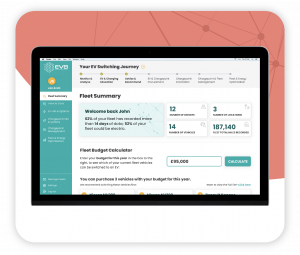Reducing Total Cost of Ownership: A Fleet Manager’s Guide to Optimising Vehicle Expenses
As fleet managers face increasing pressure to reduce costs and enhance sustainability, finding ways to minimise Total Cost of Ownership (TCO) for vehicles has become a top priority. TCO encompasses all expenses associated with owning and operating a fleet, including acquisition, maintenance, fuel, insurance, and resale value. In this blog post, we will explore several strategies that can help fleet managers optimise TCO and make informed decisions to ensure their fleet remains efficient, cost-effective, and environmentally friendly.
1. Data-Driven Fleet Management – Adopting a data-driven approach is crucial for effective TCO reduction. Utilise fleet management software and telematics to gather real-time data on fuel consumption, vehicle performance, maintenance schedules, and driver behaviour. This data enables inefficiencies to be identified, track expenses, and make data-backed decisions to optimise vehicle usage.
2. Right-Sizing the Fleet – Evaluate the actual usage patterns of vehicles in your fleet. Identify underutilised or idle vehicles and consider downsizing or eliminating them from the fleet. Right-sizing can significantly reduce acquisition, maintenance, and insurance costs, leading to substantial TCO savings.
3. Embrace Electric Vehicles (EVs) – Transitioning to electric vehicles is a strategic move to reduce TCO and promote sustainability. Although EVs might have a higher upfront cost, they have significantly lower operating expenses, including fuel and maintenance costs. Additionally, with an increasing number of charging stations and government incentives, EVs are becoming a financially viable option for fleet managers.
4. Maintenance and Repairs – Implementing proactive maintenance practices can prevent costly breakdowns and extend the lifespan of fleet vehicles. Regular maintenance not only reduces repair expenses but also enhances fuel efficiency and overall vehicle performance. Consider establishing a preventative maintenance schedule and using OEM-approved spare parts to ensure optimal reliability.
5. Optimise Fuel Efficiency – Fuel costs represent a significant portion of TCO. Encourage drivers to adopt fuel-efficient driving habits, such as reducing idling time, avoiding aggressive driving, and adhering to speed limits. Routinely monitor fuel consumption data to identify anomalies and implement fuel management strategies.
6. Telematics and Driver Training – Investing in telematics systems can provide valuable insights into driver behaviour. Identify areas where drivers can improve, such as harsh braking, excessive speeding, or inefficient route planning. Driver training programs that emphasise fuel-efficient driving practices can lead to considerable fuel savings and reduced wear and tear on vehicles.
7. Resale and End-of-Life Planning – Plan for the end of a vehicle’s life cycle from the moment of purchase. Selecting vehicles with better resale value and planning for proper disposal or recycling can positively impact TCO. Explore remarketing options, negotiate favourable lease-end terms, and choose vehicles with desirable features that retain value.
Interested to know how we can help your fleet with your electrification strategy or any of the above? Submit your interest here.

